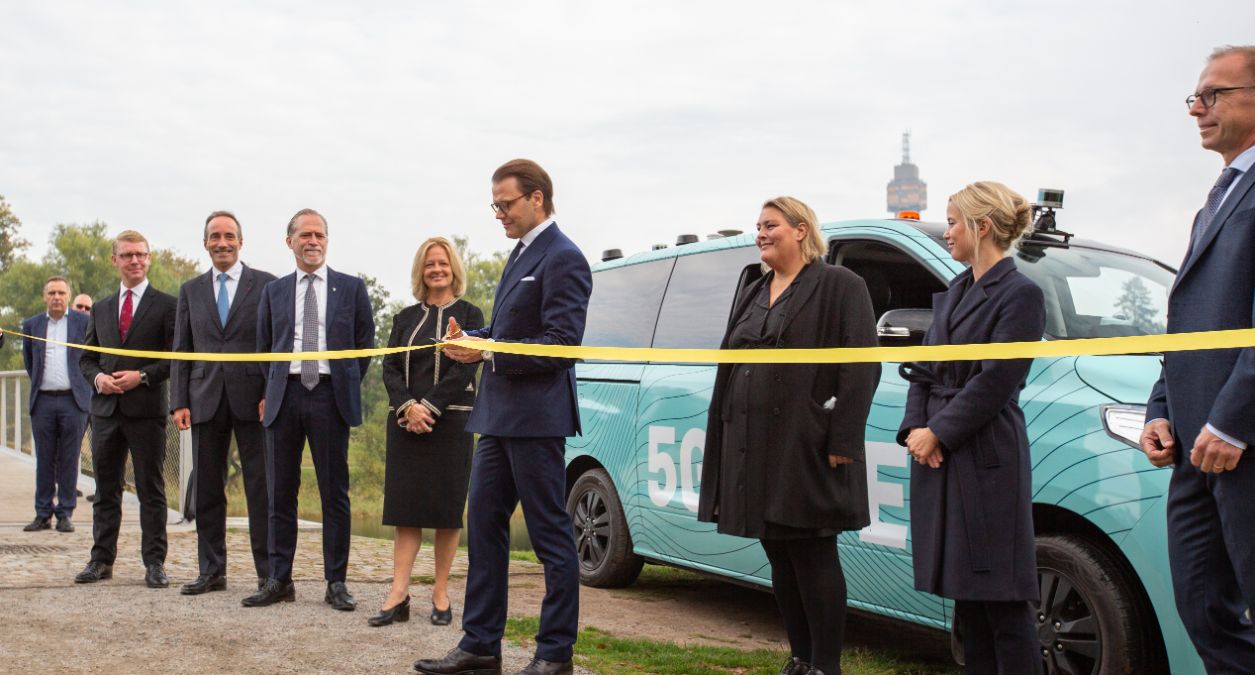Telia 5G enabling self driving buses in Stockholm
Today, a new self-driving electric and 5G-enabled bus route has been inaugurated in Stockholm’s Royal Djurgården by HRH Prince Daniel, city officials and industry representatives. Next stop: the future.
The shuttle bus will take passengers autonomously around popular tourist attractions in Djurgården, a green and tranquil oasis in central Stockholm, during a two week-trial in September. A safety driver will always be present in the vehicle.
The pilot project, 5G Ride, is part of an initiative led by Urban ICT Arena, Keolis, Telia, Ericsson and Intel and backed by Vinnova and Drive Sweden, that focus on how 5G and control towers can enable the safe introduction of self-driving, electric buses in urban areas.
“This is a great example of how 5G can benefit society. Self-driving technology combined with electrification and 5G can help transform public transport, making it more efficient to operate and more accessible to the people who need it, while reducing the environmental footprint. Key components in building smarter cities,” says Anders Olsson, CEO of Telia Sweden.
The future of public transportation is connected, autonomous, electric and shared
An intelligent electric transport system like this, powered by renewable energy and where operators control large fleets of autonomous vehicles remotely, will optimize route planning and traffic.
Benefits include reduced operational costs and environmental footprint and more accessible public transport.
The 5G network's unique technical features, including enhanced security, extremely high data speeds combined with low latency, enables the connected buses to respond in real time to commands from the centralized control tower.
Stockholm city officials welcome this opportunity to test the future of public transportation.
Kristoffer Tamsons, Regional Minister for Transport, Region Stockholm, says:
“Pilots like this in Royal Djurgården show that our public transport system serves as a suitable partner in testing new technologies in automation, digitalization and electrification. We encourage partnerships that put the conventional perception of public transport to the test. It brings the mobility solutions of tomorrow closer to today.”
Daniel Helldén, Vice Mayor of Traffic in the city of Stockholm:
“To solve our problems with congestion, air quality and climate emissions in Stockholm, we need many different transport solutions. We are positive to these types of pilot projects because we believe that the vehicle of the future is autonomous, electric and easy to share, and this autonomous electric bus is a perfect example of that.”
About the initiative
The pilot is the result of a unique collaboration between some of Sweden’s most prominent and well-known organizations within the fields of mobility and technology. The knowledge hub and testbed Urban ICT Arena leads the initiative with Keolis as bus operator. Ericsson provides the technical solution for the connected control tower. Telia provides 5G connectivity in collaboration with Ericsson and has deployed 5G in Djurgården specifically for this project. Intel delivers analytics capabilities and the technology for the processing across the network including the IT-system in the vehicles and the control tower, as well as the mobile network. T-engineering, a Swedish technology firm, delivers vehicle and self-driving technology.
The ambition is for the project to return to Djurgården in the future.
Cookie notification
Cookies allow us to optimize your use of our website. We also use third-parties cookies for advertising and analytics. Please read our Cookie Policy for more information.

